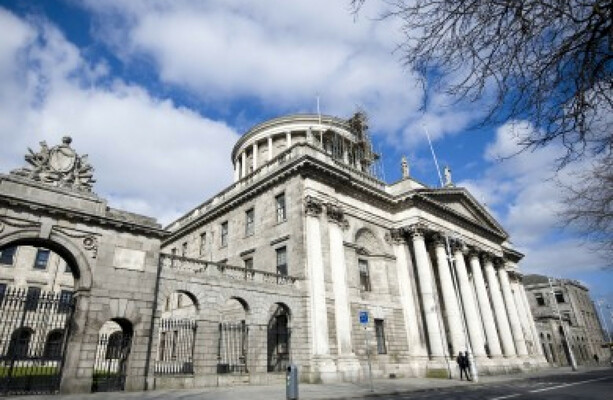A Supreme Court challenge has been filed against Board Blinala’s decision to give the go-ahead for Co Meath’s data center.
The lawsuit was filed by Mannix Coyne and his daughter Amy Coyne, who live in Bracetown, Clonee, Co Meath, near the 24.5-hectare site where permission was granted to allow EngineNode Ltd to build a data center.
In the Supreme Court today, Judge Garrett Simmons said when granting permission to lift the judicial review proceedings that the case raised important points in domestic and EU law.
The proposed center includes four two-story data storage buildings and offices as well as linked roads and a car park.
If constructed, it is claimed that the center would require 180 megawatts of electricity per year and generate an estimated 1% of Ireland’s total annual carbon dioxide emissions.
Coynes claims that the planning authority’s decision in early July to grant planning permission was flawed, invalid and should be overturned.
Represented by attorney John Kenny Bell, with instructions from attorney Gabriel Tolan, Queens claims the decision is inconsistent with planning regulations, the Planning and Development Act 2000 and the European Union Directive on Environmental Impact Assessments.
They argue that the council failed to assess, identify and describe the environmental impact that would result from carbon dioxide emissions from the proposed development.
The council did not give any consideration to the 2015 Climate Action and Low Carbon Development Act, it is alleged.
It is alleged that granting the permission would result in the production of an extremely large amount of carbon dioxide emissions, which violate Quinn’s constitutional right to life, physical integrity and a healthy environment.
They also claim that they would suffer a significant loss of amenities and privacy as well as serious disruption to the horse business they run from their home, Clonee, if the center and associated businesses were to be carried out.
The lawyer said that the developer had originally proposed building a power center on the site to provide some of the energy it required.
This part of the proposed development, affecting the levels of carbon dioxide the center would generate, was dropped when the planning permission application was submitted before the council.
This material change to the original proposal was not properly evaluated by the board’s attorney.
Another aspect of Coynes’ challenge, the attorney said, is that the board of directors failed to assess the impact that the proposed roads and the rotor at the site would have on its clients.
The lawyer said the decision also goes against the European Union’s habitat directive.
In judicial review proceedings against the Board of Directors, Ireland and the Attorney General are seeking orders including to overturn the Board’s decision to allow the data center to be set up.
EngineNode Ltd is a Notice of Action party.
No news is bad news
magazine support
is yours contributions You’ll help us keep delivering the stories that matter to you
Support us now
In a second set of related actions, Coynes is also challenging the Board’s decision to allow a substation and network connection work, associated with the proposed data center, in Bracetown and Gunnock north of Clonee.
They are also seeking to overturn this decision by the Board of Directors.
After hearing memos from the attorney, Judge Simmons said he was satisfied that Coynes had been given permission, on a unilateral basis, to file both appeals.
The judge said the case raised important points in local and EU laws, aspects of which have not yet been determined by the courts.
The judge also halted the decisions, forbidding any work to be carried out on the site, until the matter then goes back to the court.
He also gave the parties permission to return to court in an effort to lift the moratorium.
The matter will return to the Supreme Court in October, when the new legal term begins.

















